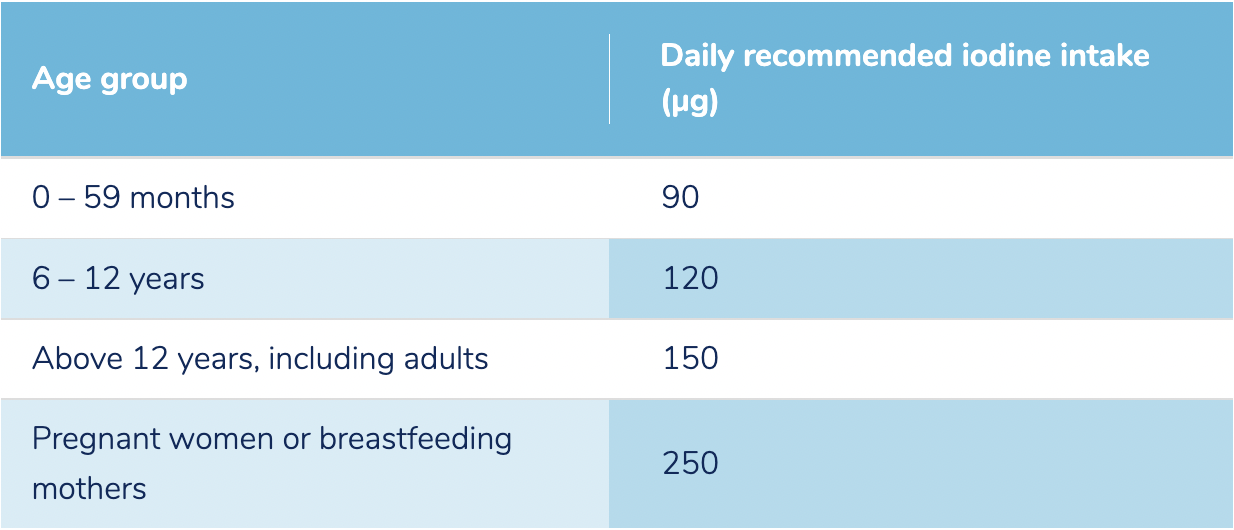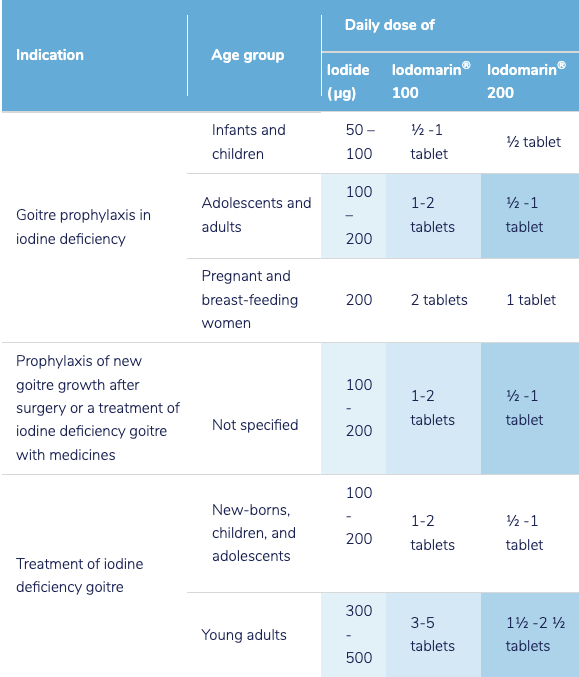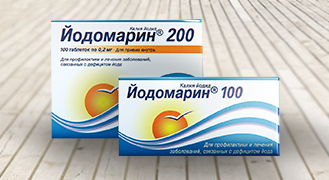![[field.alt-text]](/sites/g/files/fugoka841/files/2022-09/image_IODOMARIN_Tripleteaser_Mother_Babies_Iodine.jpeg)
Mothers-to-be
Pregnant women and breast-feeding women have an increased need for iodine due to their particular metabolism.
Iodine is an essential mineral nutrient and a trace element. A “trace element” is one that is needed by the body in minute quantities while “essential” means that the body needs such a mineral but cannot produce it by itself. So it is important for your health to take sufficient iodine with food.


An estimated 1.9 billion people are at risk from iodine deficiency worldwide.Data reports indicate that inhabitants of 21 countries suffer from mild iodine deficiency and nine are moderately iodine deficient. On the other hand, more than 110 countries have an adequate iodine intake. However in these countries some subgroups such as vegans, vegetarians, weaned infants or those who do not use iodised salt may still be deficient in iodine. There is also an increased need of iodine for pregnant and breast feeding women and they are susceptible to iodine deficiency.
The necessary daily intake is dependent on a person’s age. The United Nations International Children’s Fund (UNICEF), the International Council for Control of Iodine Deficiency Disorders (ICCIDD) and the World Health Organization (WHO) recommend the following amounts:


Different agencies have recommended different intakes to meet iodine needs of non-pregnant, pregnant and breastfeeding women, ranging from 150 to 290 µg/day.
[National recommendation should be added here]
Typically symptoms of an iodine deficiency disease include:


After ingestion of many mg of iodine acute iodine poisoning may occur. Although, in case of healthy person with no other problems and iodine sufficiency, the thyroid is able to adjust to a wide range of iodine intakes, so healthy individuals may tolerate up to 1 mg daily intake.
An acute iodine poisoning can cause gastrointestinal or cardiovascular symptoms, or even coma. It can also cause the thyroid to become over or underactive. Symptoms of excess thyroid hormone production as a result of an overactive thyroid include hyperactivity, irritability, heat intolerance, palpitations, weakness, fatigue and weight loss. Symptoms of less thyroid hormones as a result of an underactive thyroid include tiredness, weakness, poor memory and difficulty concentration, weight gain, feeling cold, dry skin and hair loss.
Thyroid hormones can have effects on virtually every cell in your body. Therefore an excess of these hormones can affect nearly every organ or tissue of the body:
Iodomarin® has two distinct therapeutic indications:
The recommended dosage of Iodomarin® depends on the indication and on your age.


You should take the Iodomarin® tablets after a meal with sufficient liquid, e. g. a glass of water.
Generally Iodomarin® must be administered for prophylaxis over a period of years, and not uncommonly for life. For treating goitre in new-borns the length of use is usually 2 – 4 weeks and 6 – 12 months or more in children, adolescents and adults.
Yes, there can be contraindications, therefore you should not take Iodomarin®:
In pregnancy and the breast-feeding period an increase iodine requirement exists, meaning that adequate iodine intake is particularly important. However, iodine and iodine-containing preparations should only be taken with evaluation of benefit and possible risks and only at the explicit direction of the doctor. Please ask your doctor or pharmacist for advice before taking Iodomarin®.


Iodomarin® tablets contain potassium iodine. Other ingredients are lactose monohydrate, light magnesium carbonate, gelatine, sodium starch glycolate (type A), colloidal anhydrous silica and magnesium stearate.


Iodomarin® tablets contain lactose.
Please contact your doctor before taking Iodomarin® if you have intolerance to lactose.
Like all medicines, Iodomarin® can cause side effects, although not everybody will get them. When iodide is used for prophylaxis, undesirable effects are generally not expected. However, in the presence of large uncontrolled hormone-forming areas in the thyroid and daily iodine administration of more than 150 μg, an overactive thyroid becoming manifest cannot be ruled out completely.
In very rare cases, which means in less than 1 in 10,000 people taking Iodomarin® the following side effects could occur:
If you are taking Iodomarin® and get any side effects, talk to your doctor or pharmacist. This included any side effects not listed here.
Iodomarin® does not require any special storage conditions. The package should be stored in a dry place out of the reach of children, at temperature from + 5 °С to + 25 °С, protected from direct sunlight. Do not use the tablets after the expiry date on the label and the outer carton.
[Country specific information should be inserted here]

Iodine is vital for health: The thyroid gland needs this essential mineral to steer many bodily processes. Controlled iodine supplementation adds to a healthy life.

Breast-feeding women have an increased need for iodine, as well as their babies. Deficiency is to be avoided because of negative effects on development and on good health.

